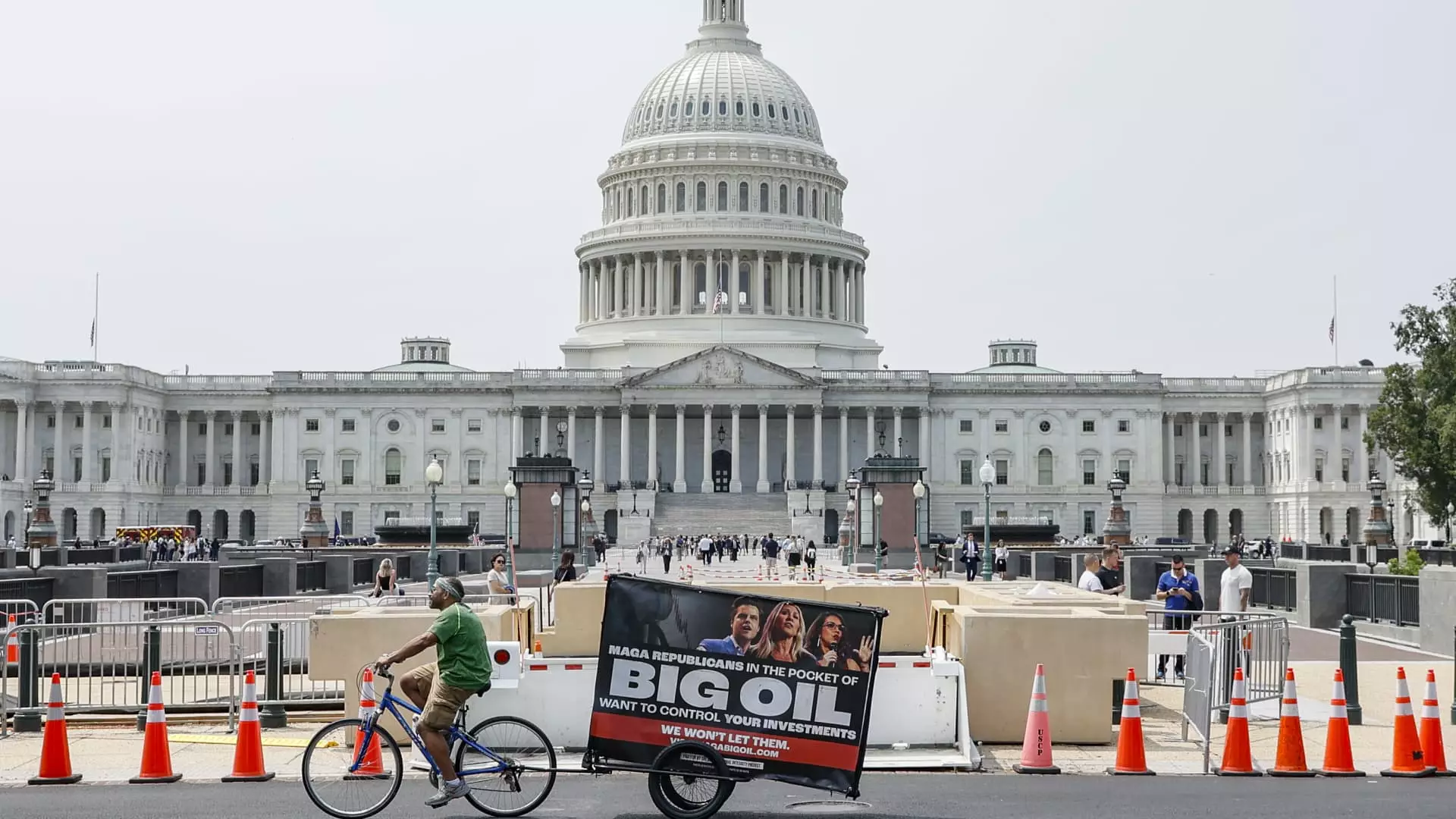In recent years, the financial landscape has witnessed a noticeable shift in the flows of ESG (Environmental, Social, and Governance) investments, marked by significant outflows from ESG funds amid political turbulence and economic shifts. Investors withdrew nearly $20 billion from U.S. ESG mutual funds and exchange-traded funds (ETFs) in 2024, following a withdrawal of approximately $13 billion in the previous year. This trend raises questions about the sustainability and future of ESG investing, especially in the context of rising interest rates and a perceived backlash against these investment strategies. However, despite the noise and temporary setbacks, analysts argue that the long-term prospects for ESG investments remain robust, suggesting that the recent turmoil is more of a transient phase than a death knell for sustainable investing.
The Long-Term Viability of ESG Investments
Despite the backdrop of political headwinds, analysts like Diana Iovanel from Capital Economics contend that the intrinsic value of ESG investments is not diminished. She asserts that the demand for ESG-focused investments is enduring, indicating that consumers and investors prioritize sustainability. This points to a significant evolution in the mindset of individual investors, particularly among younger demographics, who are increasingly interested in aligning their investment choices with their values. A Morgan Stanley survey released in 2024 highlighted this trend, revealing that an overwhelming 84% of U.S. individual investors express a desire for sustainable investment options, with many reporting an increased interest over the past two years. This growing demand signals a cultural shift that could persist, regardless of political controversies surrounding ESG initiatives.
Interestingly, the criticism leveled against ESG investing is rooted in a perception of “woke capitalism” that detractors argue prioritizes social agendas over financial performance. However, advocates counter that companies that adopt ESG principles are better positioned for long-term success due to their ability to adapt to evolving market dynamics. In an increasingly aware consumer landscape, firms prioritizing sustainability and ethical governance are likely to find a loyal customer base that translates into robust financial performance.
Market Dynamics: High Interest Rates and Stock Performance
While political controversies play a role in shaping sentiment towards ESG investments, analysts argue that external economic factors like high interest rates are also critical players in the equation. Elevated borrowing costs disproportionately affect capital-intensive sectors like clean energy, thereby impacting the performance of ESG-focused funds. In fact, less than half of sustainable funds managed to place in the top half of their investment categories recently, according to Morningstar. This underperformance is not merely a reflection of market volatility but rather indicates a challenging environment for ESG sectors, particularly following the surge in oil and gas prices post-Russia’s invasion of Ukraine.
However, it’s essential to maintain perspective. Prior to 2022, ESG investments generally exhibited superior performance, outperforming their non-ESG counterparts. In 2020 alone, typical U.S. ESG stock funds surpassed the returns of their peers by approximately four percentage points. This profitability suggests that while the past couple of years have been rocky, enthusiasm for ESG investing can be justified based on historical performance data.
Unpacking the Political and Social Resistance
The political landscape is undeniably hostile to ESG investing. The election of former President Donald Trump catalyzed an anti-ESG movement, evidenced by his prompt withdrawal from the Paris Agreement and the implementation of policies discouraging clean energy adoption. More broadly, Republican-led initiatives across multiple states have implemented “anti-ESG legislation,” generating further uncertainty in the market. Notably, the Republican-led Securities and Exchange Commission’s recent decision to abandon a climate-change disclosure rule has raised alarms regarding the sustainability of ESG mandates.
Nevertheless, this backlash may inadvertently intensify investor commitment to ESG principles. As economic and environmental crises continue to manifest globally, there may be increased scrutiny towards firms that neglect sustainability. Investors seeking long-term stability may recognize that the pressures for responsible governance are not going away. Historical patterns suggest that businesses embracing ESG frameworks experience stronger resilience during times of economic distress, further validating the rationale for sustainable investment practices.
The Future of ESG Investing: A Resilient Path Ahead
Even as the number of ESG funds contracted for the first time—from 646 in 2023 to 587 in 2024—this contraction may reflect a natural recalibration of the market rather than an indictment of the ESG model. It is crucial to remember that every investment sector experiences highs and lows tied to broader market conditions. As Jennifer Coombs of the U.S. Sustainable Investment Forum noted, the ultimate goal of ESG investing is to mitigate long-term risks rather than merely chase immediate financial gains.
Looking ahead, the resilience of ESG investments will likely hinge on the pressing need for businesses to integrate sustainability into their core strategies. As society continues to prioritize ethical consumption and corporate accountability, the apparent ‘headwinds’ against ESG could transform into tailwinds over time, shepherding a new era of responsible investing. Investing with an eye towards sustainability is not merely a fleeting trend; it embodies a necessary evolution in understanding the intricate nexus between finance, social responsibility, and environmental stewardship.

